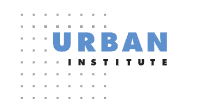New Items
Colleges Cut Ad Spending by More Than Half in Last Decade
Inside Higher Ed
Sara Custer
February 12, 2026
Universities are spending more than 50 percent less on advertising than they were 10 years ago. According to data compiled by the Postsecondary Education and Economics Research Center at American University, after peaking at $1.29 billion in 2014, advertising spending by higher education institutions dropped to $600 million in 2022.
The number of institutions buying ads has also dropped, from a peak of 46 percent of the sector in 2010 to about 35 percent in 2022. More than half of colleges in the U.S. do not advertise at all, the study found.
For-profit colleges account for about 88 percent of the total decline in spending over this time period. Heightened security from the federal government and a steady decline in enrollments at for-profit colleges likely contributed to the fall in spending, researchers hypothesized.
CONTINUE READING
Read MoreAn Earnings Test for Higher Education Risks Diverting Students from Some Meaningful Careers
Urban Institute
Sandy Baum and Kristin Blagg
February 11, 2026
Recently, the US Department of Education’s negotiated rulemaking committee reached consensus on a framework for implementing a “do no harm” earnings test for students completing postsecondary programs. This test sets two thresholds for undergraduate programs:
-
If the median earnings of an undergraduate program’s graduates don’t exceed the median state earnings for high school graduates, usually measured four years after completion, the program will lose the ability to provide federal loans.
-
If programs falling below that threshold account for at least half of an institution’s federal aid recipients or half of federal student aid funds, then the institution will lose the ability to provide Pell grants as well as federal loans.


